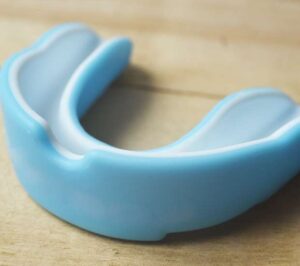 An esthetic dentist analyses a patient’s smile to determine where corrections can be made to improve the smile and overall oral health while maintaining optimal functionality. These corrections can include a wide variety of services that target missing teeth, gaps between teeth, decay, staining, yellowing, chips, and cracks. To determine how to treat a patient’s teeth, the dentist may look at a variety of factors impacting the natural arrangement of teeth.
An esthetic dentist analyses a patient’s smile to determine where corrections can be made to improve the smile and overall oral health while maintaining optimal functionality. These corrections can include a wide variety of services that target missing teeth, gaps between teeth, decay, staining, yellowing, chips, and cracks. To determine how to treat a patient’s teeth, the dentist may look at a variety of factors impacting the natural arrangement of teeth.
Common questions about esthetic teeth arrangement
Patients may wonder whether getting esthetic work done is the right choice. This often depends on individual needs and personal reasons. Talking to an esthetic dentist is one of the better ways to make a decision, but not everyone can see a dentist right away. To help patients better understand this type of dentistry, here are the answers to some of the most common questions from a professional view.
What determines the natural arrangement of a smile?
There are several main components that make up a smile. Dentists are trained to assess how these elements come together to create a perfect smile and how to recognize when something is off. Teeth color, wear, and alignment are just some of the crucial aspects of this assessment. The dentist may also look at how a person’s lips are framed in the face, where the midline of the face naturally rests, and how the lips change when the person is smiling. It is not just teeth that create a smile but a combination of these components.
What do esthetic dentists take into consideration before treatment?
There are four main esthetics studied by dentists:
Each of these factors contributes something to the overall smile, and one may be lacking and hindering the impression of the rest of the smile. The facial category deals with how the face frames the smile. Gingival esthetics carefully assess the gums for signs of disease or decay, which may cause inflammation and the gums to pull away from teeth. Micro esthetics look closely at each tooth, noting slight discolorations, chips, and cracks. Macro assessments look at where the teeth line up compared to the midline of the face and how teeth appear compared to the gums and lips.
How does an esthetic dentist maintain a natural look?
Getting work done on teeth does not mean totally changing the appearance of a person’s smile. Esthetic work emphasizes keeping a smile looking as natural as possible. This means focusing on the micro esthetics to make sure veneers or crowns match the natural teeth color. It also means aligning teeth in a way that complements the patient’s face. Because esthetic treatments are all about maintaining natural functionality, small adjustments may be made rather than larger overhauls.
Check out what others are saying about our dental services on Yelp: Dental Aesthetics in Tamarac, FL
Conclusion
Discussing treatment with an esthetic dentist one on one can be a great way to determine what changes can fix a smile. Talk to a dental professional to discover smile improvements to subtly adjust the natural arrangement of your teeth.
Request an appointment or call The Dental Place of Tamarac at 954-271-8072 for an appointment in our Tamarac office.
Related Posts
Esthetic dentistry can provide a middle ground between the health-focused care of general dentistry and the appearance-focused improvements of cosmetic dentistry. While the closely related field of cosmetic dentistry can be a good option for making visible or dramatic changes, an esthetic approach may be recommended for patients who primarily want to maintain a healthy…
An esthetic dentist can help you keep the natural condition of your teeth. The goal of restorative dentistry is not only cosmetic but also for better oral health. Esthetic dentists want to help restore and maintain your oral health. Ideally, you should try to preserve your natural teeth if you can.Braces and other aligners are…
Restorative or esthetic dentistry is not the same as cosmetic dentistry. This field of dentistry brings back the normal structures of gums and teeth. It also aims to return the function of these mouth parts. It focuses on providing comfort, health, and durability to patients. It can help patients look, feel, and function better. Here…
We are committed to providing quality healthcare to families located in the Tamarac area and treat patients of all ages.
The Dental Place of Tamarac
7300 W McNab Rd Ste 115
Tamarac, FL 33321
Phone: (954) 271-8072
Book Your Appointment Today!




